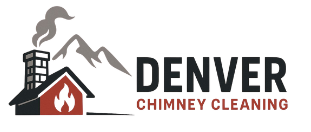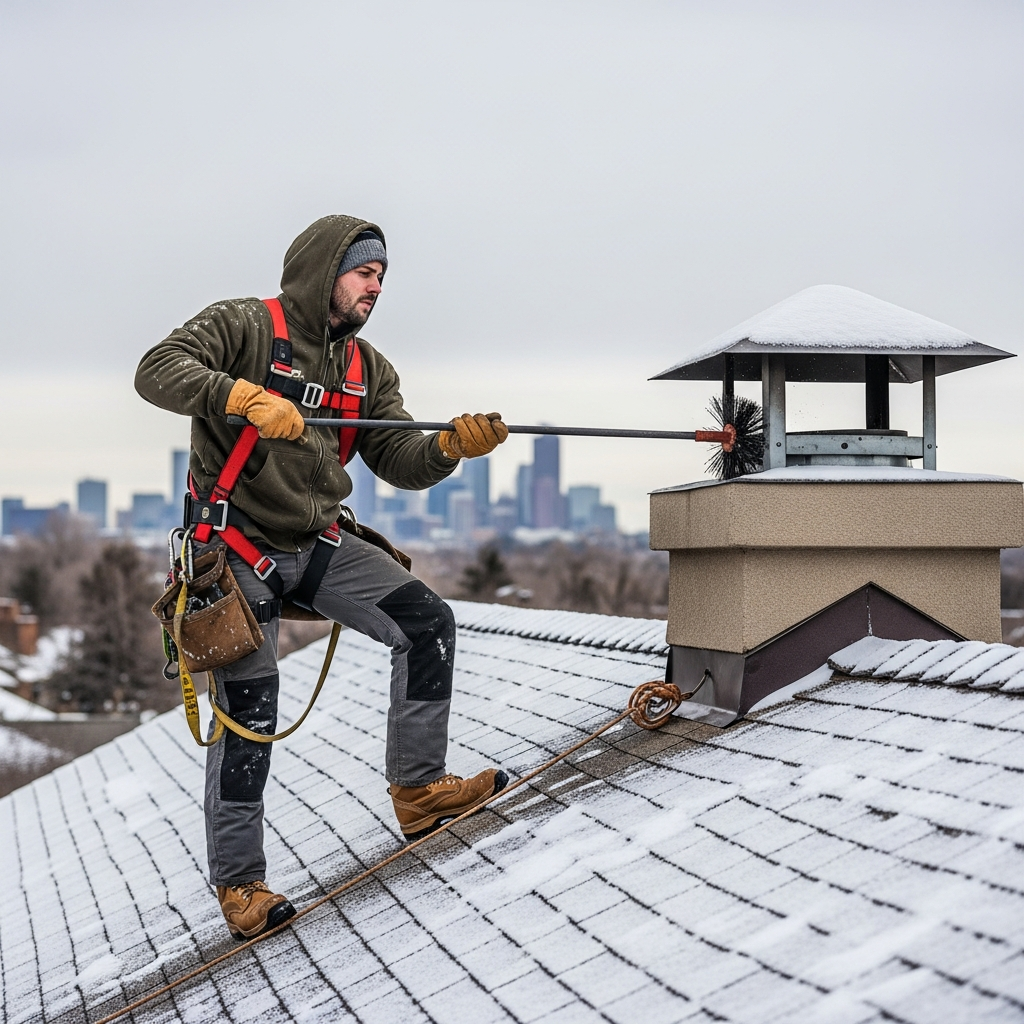Searching for the best chimney sweep near you in Denver, Colorado can feel overwhelming, especially when your home’s safety and comfort are on the line. Denver’s unique mix of high-altitude weather, dry air, and dramatic temperature swings means fireplaces and stoves need special attention to perform safely and efficiently. In this guide, you will learn how to identify a qualified, reliable professional, what to expect from a thorough service, and how to avoid common pitfalls. If you are short on time and simply want a reputable option, look for a provider that offers dependable chimney sweep services backed by strong local reviews and transparent practices.
Choosing correctly matters. A well-maintained chimney reduces fire risk, improves indoor air quality, and helps your heating system operate as intended. The right expert will also catch early signs of wear before they turn into bigger issues that demand more extensive attention. With the right checklist and questions, you can make a confident decision and protect your home throughout snowstorms, spring winds, and summer thunderstorms.
What Makes a Great Chimney Sweep in Denver
Denver is not just any market for fireplace and venting care. Altitude affects combustion and draft, and the dry climate can accelerate masonry wear in unexpected ways. A top professional understands how local conditions affect flues, dampers, and exterior crowns from Highlands to Green Valley Ranch. They also bring a mix of technical skill and customer care that puts homeowners at ease.
- Verified training and credentials specific to fireplace and venting systems.
- Local expertise with brick, block, stone, metal chimneys, and manufactured systems common in Denver-area neighborhoods.
- Proven safety protocols for roofs, ladders, and interior protection.
- Clear, written reports with photos and plain-language explanations.
- Respect for your home, from floor coverings to careful ash containment.
Essential Qualifications to Check
When you screen providers, start with qualifications. Relevant certifications and continuing education signal a commitment to current best practices. Ask how often technicians train on changes in building codes and manufacturer instructions. Request proof of insurance that includes coverage for work on roofs and in living spaces. Finally, verify that the business is properly registered and has a physical presence in the area.
Experience is equally important. A team that regularly services a mix of wood-burning fireplaces, gas inserts, stoves, and factory-built units will recognize patterns quickly and diagnose issues efficiently. Ask how many systems similar to yours they handle in a typical season, and whether they have documented case studies or before-and-after photos they can share.
Signs of a Professional Process
A refined process protects your home and produces reliable results. You should see the technician lay down protective coverings, set up dust control, and explain the plan before work begins. They will inspect the firebox, damper, smoke chamber, and flue; check the crown, cap, and flashing; and assess the surrounding materials for signs of moisture or heat stress. Good techs invite your questions and point out findings as they go.
- Interior protection from soot and debris, including floor runners and sealed vacuums with HEPA filtration.
- Roof safety measures and weather checks before climbing.
- Top-to-bottom documentation, often including camera inspections of the flue.
- Clear communication about what is routine and what needs attention.
- Detailed recommendations prioritized by urgency and safety impact.
Red Flags to Avoid
Not every service is equal. Watch for warning signs that indicate you should keep looking. Vague phone quotes without questions about your system, high-pressure tactics, and a reluctance to provide references are concerning. A lack of written documentation, no photos, or an unwillingness to explain findings are also red flags. Be wary of anyone who suggests extensive work before completing a proper inspection or who dismisses your concerns.
- No protective coverings or dust control equipment on arrival.
- Inconsistent answers about codes, manufacturer instructions, or chimney materials.
- Unwillingness to show you what they found before recommending next steps.
- Unclear scheduling windows or no-show patterns.
- Non-local phone numbers with no established presence in Denver communities.
How to Compare Local Options
Building a short list is easier when you standardize your questions. Ask each provider the same set of topics so you can compare apples to apples. For instance, inquire about their inspection steps, the types of systems they service most often, what reports you’ll receive, and how they protect your home’s interior. Request expected timelines for scheduling during peak season and clarify what access they will need to your home.
- Describe your system: wood-burning fireplace, insert, stove, or gas unit.
- Share any symptoms: smoke in the room, odors, draft issues, or visible residue.
- Ask about their inspection sequence from firebox to cap, and whether they use cameras.
- Confirm cleanup procedures and any homeowner prep needed.
- Request a sample report or photos from similar jobs.
Denver-Specific Considerations
Altitude and weather in Denver require care with drafting, vent heights, and wind patterns. Chimney caps, crowns, and flashing face intense sun, snow, and hail, which can accelerate wear. Masonry absorbs moisture during storms and releases it under bright sun, creating freeze-thaw cycles that stress joints. A pro who works in the region daily will recognize these patterns, recommend appropriate caps and crown designs, and spot early signs of deterioration.
Neighborhood factors matter too. In older areas with historic homes, flues may be unlined or undersized, requiring specialized solutions. In newer developments with factory-built systems, technicians must follow manufacturer specifications closely, including clearances and termination heights. Your goal is to find a partner who can adapt to the specific materials and age of your system.
Routine Maintenance vs. Corrective Work
Routine sweeping and inspection keep your system performing well and help prevent more extensive repairs. Corrective work might include addressing smoke chamber transitions, resolving drafting issues, improving rain and animal protection, or restoring masonry integrity. A seasoned specialist will explain the difference between preventive steps and items that require attention soon, plus what can reasonably wait and still keep you safe.
If you use your fireplace or stove frequently, schedule checks before peak cold arrives. Early appointments reduce the chance of scheduling delays and allow time to address any findings. Even households that use their fireplace sparingly benefit from regular inspections, since nests, debris, or unexpected obstructions can build up during the off-season.
What to Expect on Service Day
On service day, you should expect punctual arrival, a quick walkthrough to confirm system details, and protective coverings to go down right away. The technician will explain each step, set expectations for timing, and answer questions. During the inspection and sweeping, you may hear vacuums and brushes, but debris should remain contained. At the end, you will receive a summary and recommended next steps backed by photos or clear descriptions.
Some homeowners like to observe portions of the process to learn about their system. Good technicians welcome that interest and will point out notable features like damper condition, flue tile integrity, smoke chamber transitions, or cap effectiveness. That knowledge helps you recognize changes later, such as unusual odors or drafting differences after storms.
Mid-Season Check-ins and Long-Term Care
After an initial visit, many homeowners adopt a rhythm for long-term care. Depending on usage, you might schedule a mid-season check-in or a pre-winter inspection every year. Consistency pays off by catching small issues, preserving efficiency, and extending the life of the system. If you notice new symptoms—stains on the ceiling near the chimney, animal noises, or backpuffing smoke—contact your provider promptly for guidance.
If you are consolidating your research and want a dependable option known for careful documentation and respectful service, consider a local team focused on comprehensive chimney sweeping services in Denver. Look for clear inspection notes, photos, and explanations prioritized by safety and function.
Questions to Ask Before You Book
- What type of systems do you service most often in Denver?
- How do you protect interiors from dust and soot?
- Do you use cameras for flue inspections and share photos?
- What safety measures do you follow for roof work?
- How soon can I schedule, and how long will the appointment take?
FAQ
How often should chimneys be inspected in Denver? Many households benefit from an annual inspection, with frequency adjusted for usage and fuel type. Even occasional use warrants regular checks because debris and weather can introduce new risks.
What are common signs my chimney needs attention? Persistent odors, smoke entering the room, visible residue falling into the firebox, unusual animal activity, staining around the chimney, or a damper that no longer seals properly are all indicators to call a professional.
Do gas fireplaces need sweeping? Yes. Gas appliances produce byproducts and require venting checks. Technicians verify clearances, vent connections, and termination conditions, and they ensure the appliance is burning cleanly.
Will cleaning make a mess? A good provider deploys containment from the moment they arrive. With proper vacuums, floor protection, and methodical technique, cleaning should be tidy and stress-free.
What documentation should I receive? Expect a summary of findings and, ideally, photos from the inspection. Clear notes help you plan maintenance and track changes over time.
Ready for a Safer, Cleaner Fireplace?
Protect your home and enjoy peace of mind through dependable care. Schedule with a trusted Denver specialist who prioritizes safety, documentation, and courteous service. If you are ready to move forward, book an appointment with a reputable Denver chimney sweep and keep your system in excellent condition through every season.




